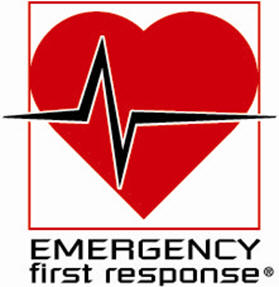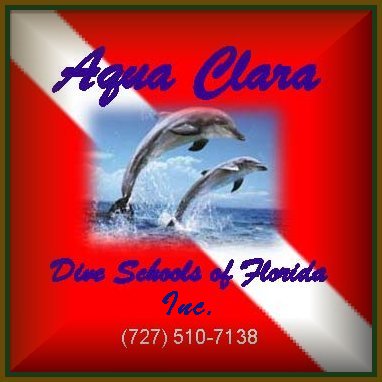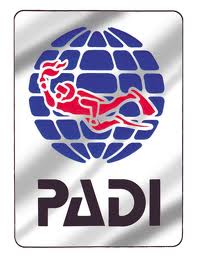If you have been around PADI for some time
you will remember Medic First Aid and possibly some of the Rescue
course training
that preceded that. Emergency First Response Corporation has followed on
those building blocks and, by accessing the best emergency care specialists in the field
worldwide, has developed a combined clinical/teaching protocol which goes
far beyond what most people have become accustomed when it comes to CPR
and/or first aid training.
Let's get this one out of the way! Does EFR compete with American Red Cross,
American Heart Association and/or DAN? It would be disingenuous to answer any
way but a collegially oriented "yes." In many ways the clinical
protocols will appear to be the same. However, the educational
delivery and support protocols established by EFR are substantially
different... both in terms of breadth and depth. Additionally, using a
multimedia approach, students either own or have long-term access to
training/reference resources in DVD, hard copy and web formats... before
and after completing their EFR course. For cost reasons, many of the
not-for-profit training agencies provide no post-course owned or accessible
resources (n.b., not even a manual). Going out the door with nothing more
than a flimsy paper completion card, some used latex gloves and a handful of
crumpled training bandages is actually more common than not.
As with all PADI-related training
regimens, mid-course and final knowledge assessments must be completed at
passing levels and skill mastery must be clearly demonstrated to the EFR
instructor. EFR's definition of "skill mastery" is the same as what
PADI employs in its diving courses and might be substantially different than
what you might have been exposed in other more passive training courses.
Just filling a seat for a few hours and signing on to the "something is
better than nothing" training philosophy espoused by some agencies will not
get a student an EFR course completion card!
As an international organization, the EFR
clinical protocols can also be tailored to correspond with regional
differences in protocols wherever they might exist. If you are a business
owner doing business in multiple countries, you clearly want your local
protocols to match local standards. Anything less might expose your business
to liability regardless of the efficacy of the protocols actually utilized.
Overall, EFR is a superior training delivery system to most when it comes to
addressing this need by a single organization.
You may also be asking yourself why is it
important to take CPR and/or first aid training. The answer depends on your
motivation. Candidly, most people take this training to fulfill work related
or licensing requirements. Others take it as a requirement for participation
in fraternal or young adult organizations. Some take it for more personal
and altruistic reasons, most often pertaining to changes in family status.
In addition to the above, many people find it just easier to take a full
course rather than an abbreviated refresher course if prior training has
become rusty.
All the above motivations are laudable.
However, from PADI's perspective EFR is a required stepping stone on its
professional development track starting with the Rescue Diver course. At
that level EFR per se is not required. Combined primary (CPR/AED) and
secondary (first aid) training are. Whereas many people have been only
minimally trained, and many with only the primary component, EFR can fulfill
that requirement in total and in a more substantive way. In addition, EFR
training has certain crossover credits that fulfill some Rescue Diver course
requirements which third party training does not.
As a person progresses further up the
professional training ladder to an IDC course, Instructor certification, and
above, EFR training requirements go from optional to required. Becoming an
EFR Instructor and/or EFR Instructor Trainer are required to move to the
highest levels. Bottom line: if you have plans to stay on a professional
track with PADI, your best best is to start and continue your
primary/secondary care training with EFR.
Because EFR courses employ a high degree of
self-study, and the skill requirements can be accomplished in a timely way,
Aqua Clara Dive Schools of Florida, Inc. is willing to accept groups as
small as three students. Locations can vary for these small groups from a
person's living room to a workplace break or conference room. The upper
limit for students is virtually unlimited other than by space, training
resources (i.e., CPR mannequins, etc.) and assistants. If you have a large
group for training, or if you have a multi-location situation, please
contact us and discuss with us your needs.
Just click on the below logo to initiate an
EFR related email inquiry to us at Aqua Clara Dive Schools of Florida, Inc.
We would be happy to discuss with you how we might assist in fulfilling your
training needs.
Click below logo for email.




